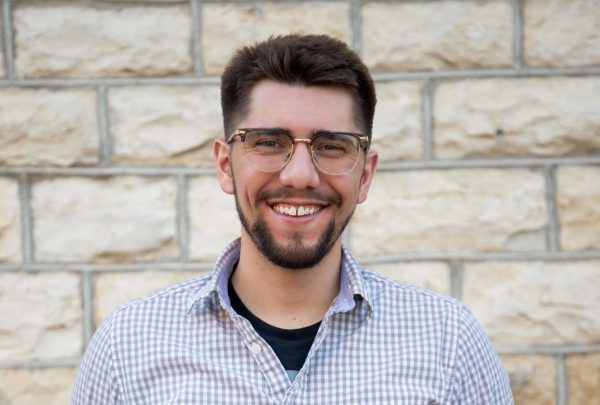While many people may know Dr. Paul Bullock for his optometry work in Manhattan or his loving devotion to his family, not many know much of his life today was shaped by his service in the U.S. military during the Korean War.
For 28 months, Bullock served his country in combat, where he earned a Purple Heart, which honors soldiers who are severely injured or killed while in the line of duty, but the horrors he faced threatened his chances of returning home at all.
His first taste of combat came on patrol, where in the blink of an eye two men only feet in front of him were killed by a machine gun nest.
“We got hit after we were a ways out, there was a lieutenant … and a radio guy with him right behind him, and all of sudden they just got mowed down by machine gun fire,” Bullock said. “They were just riddled … there was just no way they could be alive or anything, they were just totally chewed up.”
After this horrendous scene Paul fired back on the enemy.
“I spotted the machine gun down there in the valley, sort of, little ravine … you had … bullet clips of five bullets in a clip, you know, in your gun, and I emptied that on them, and there was two guys there, and it looked like I got them,” Bullock said. “But I reached down for my next clip of ammo … reached for that next one on the ground and a bullet had gone through one of those clips right underneath me, so … I can hardly talk about it.”
Even now, Bullock is shocked and grateful to have survived.
Outpost Kelly was a disturbing encounter for Bullock. With carbine in hand, he led troops as they fought North Korean soldiers almost nightly.
“This outpost had barbed wire all around and it was just loaded with dead people who tried to get into this,” Bullock said. “Somebody had to watch all night, so my guys, some of them, we just took turns at night, … and [enemy forces would] come up through and try to get through that barbed wire and you just mowed them down. That’s all you could do.”
Korea showed Bullock what humans are capable of when pushed to the brink by their government, and through his time in the forces, constant combat gave him a taste of true inhumanity.
One of his most brutal injuries wasn’t physical, but mental, when he was called to the front line and informed that his friend, sent to the artillery, had his arm severed.
“I got there … and he’d gotten his whole arm shot off and he wouldn’t let them take him to the ambulance or anything until he saw me,” Bullock said. “They flew him to Hawaii, but all he could say is ‘My wife won’t have me.’ … Of course I had to convince him she would.”
Devastating, dangerous and destructive, his direct encounters with war left Bullock with lasting traumas — but that isn’t the end of his story.
For Bullock, the thought of college had been out of the question given his family status, but his time with the Army changed that narrative.
“When I got back, I started working in an optical lab in Topeka, Kansas,” Bullock said. “I did my pre-courses at Washburn University. I did it all in one semester. I wouldn’t have had the money to go to college, and that was something we were rewarded … near the end of my period that I was supposed to get there … I found out that the president of the United States said that all Korean War veterans would get a free college education.”
This new adventure changed the course of his life, giving him the chance to succeed in ways his family before him couldn’t.
“No one in my family had gone to college,” Bullock said. “I just thought I’d go to work someplace … My mother died early on, and my dad married another person, and that was not the best situation. And so, they didn’t care what happened to me, you know? So, I was on my own.”
Though Bullock didn’t come home to find support through compassionate love from his family, he did find that reciprocated devotion from the love of his life, Marilyn.
“We were high school sweethearts,” Bullock said. “She came to K-State while I was in Korea. She was a year or so behind me in school. Her name is Marilyn … The most wonderful wife. She hung in there all the time I was in the military and so forth.”
To this day the two are inseparable, and refer to the other as their “world.”
Coming home from war was far from easy, but Bullock found peace in the love and educational opportunities that supported him when he did.
When asked about the long-term impact Bullock’s service had on his life, he was overwhelmed with emotion and gratitude, giving testimony to the longevity of his life and the love he returned home to as he replied: “To be here today. To be alive.”





















































































































